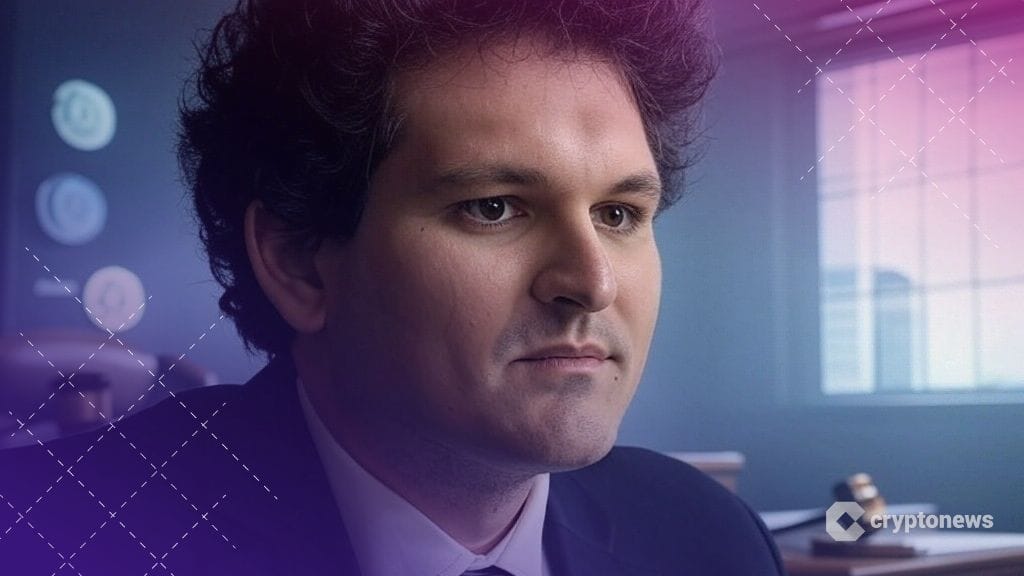Sam Bankman-Fried Placed in Solitary After Unauthorized Tucker Carlson Interview: Report
A U.S. Bureau of Prisons representative confirmed to The New York Times on March 7 that the interview had not been authorized.

Sam Bankman-Fried, the former CEO of FTX, has reportedly been placed in solitary confinement after participating in an interview with right-wing commentator Tucker Carlson without approval from prison authorities.
A U.S. Bureau of Prisons representative confirmed to The New York Times on March 7 that the interview had not been authorized .
Following its publication, Bankman-Fried was transferred to solitary confinement at Brooklyn’s Metropolitan Detention Center, where he has been held since August 2023.
Strict Prison Rules Limit Inmate Communications and Contacts
Prison regulations strictly control inmate communications, dictating who can contact them and through what means.
The interview, which was released on Carlson’s YouTube channel on March 6, quickly gained traction, amassing over 730,000 views.
During the discussion, Bankman-Fried spoke about his experience in prison and weighed in on cryptocurrency regulation in the U.S. He also maintained that he does not view himself as “a criminal.”
Although Carlson did not explicitly ask Bankman-Fried if he expected a pardon from former President Donald Trump, the FTX founder appeared open to certain Republican viewpoints.
Following the interview, speculation about a possible Trump pardon intensified.
Crypto prediction platform Polymarket noted on X that odds of an SBF pardon “nearly doubled” after the interview’s release.
Comparisons have also been drawn to Trump’s decision on Jan. 21 to pardon Ross Ulbricht, the founder of the Silk Road darknet marketplace, who had served 12 years in prison.
Meanwhile, Bankman-Fried’s legal team continues to fight his conviction. In September 2024, his lawyers filed an appeal against his 25-year prison sentence and seven felony convictions.
The 102-page appeal argues that he was “never presumed innocent,” citing media coverage and prosecutorial bias as factors that unfairly influenced his case.
SBF’s Neurodivergence Disorders Impacted Trial
As reported, a group of doctors submitted an amicus brief in support of Sam Bankman-Fried’s appeal , claiming that his criminal trial may have been significantly affected by his neurodivergence disorders.
The FTX co-founder, who has been diagnosed with autism spectrum disorder (ASD) and attention-deficit/hyperactivity disorder (ADHD), faced “serious challenges” during the court proceedings, the doctors said.
The brief, signed by eight doctors specializing in neurodivergence, highlighted that several rulings during the trial were detrimental to Bankman-Fried due to his conditions.
The amicus brief also coincided with another filing by a group of bankruptcy law professors who expressed concerns about the intersection of FTX’s bankruptcy case and Bankman-Fried’s criminal trial.
Although they did not take a stance supporting either side, the professors argued that the cooperation between the FTX bankruptcy estate and the prosecution could set a “dangerous precedent,” encouraging the use of Chapter 11 proceedings to bolster parallel criminal prosecutions.
They pointed out that the assistance provided by the FTX bankruptcy estate to the prosecutors was “extraordinary compared to previous cases” such as Enron and WorldCom in the early 2000s.
The professors also criticized the rapid pace of Bankman-Fried’s trial, which, they claimed, led jurors to believe — erroneously — that FTX customers would receive no compensation.
Disclaimer: The content of this article solely reflects the author's opinion and does not represent the platform in any capacity. This article is not intended to serve as a reference for making investment decisions.
You may also like
[Initial Listing] Bitget Will List DePHY (PHY). Come and grab a share of 6,600,000 PHY
New spot margin trading pair — ES/USDT!
Bitget Trading Club Championship (Phase 1) – Make spot trades daily to share 50,000 BGB
SLPUSDT now launched for futures trading and trading bots
